Welcome to the 2013 NAMM Show report. The industry appears to be rebounding nicely after a slow period. We haven't seen the numbers from NAMM yet, but there was clearly more traffic than the previous couple of years. The various aisles were much harder to get through. Bad for getting from booth to booth, but good for business.
Honestly there wasn't much that was new. Mostly line extensions and product upgrades. There were a few things of note however.
Two big hardware announcements were the Dave Smith Instruments Prophet 12 ($3,249) and the Korg MS-20 Mini ($860). The MS-20 Mini was designed by the same engineers who developed the original MS-20 monophonic synthesizer, but it's now in a body that's been shrunk to 86% of the original size.
The Prophet 12 has 12 voices (duh!) and each voice features four oscillators, a sub-oscillator, resonant analog low- and high-pass filters, and analog VCAs. A new "Character" section adds a variety of wave shaping and sound sculpting options, like Drive, Hack, Decimation, Girth, and Air.
Waves was demonstrating several new plug-ins including their new softsynth, Element ($99). Element is an analog-style polyphonic synth. The designers started with a Roland SH-101 as a model and added a number of other features. Waves also announced a major expansion of their strategic alliance with DiGiCo with DigiGrid, a family of high end products designed to share DSPs over a network, and, among other things, allow easy transition of projects between DAWs.
Universal Audio was demonstrating the Apollo as expected. What wasn't expected was a new 3rd party developer in Softube, who have ported their Vintage Amp Room ($199), Metal Amp Room ($149), Bass Amp Room ($149), and Acoustic Feedback Deluxe ($149) plug-ins to the UAD platform. Good news for Apollo owning guitars players like myself. Softube has been busy. In addition to the UAD announcement they have announced AAX versions of their plug-ins as well an RE version of their Valley People Dyna-mite plug-in.
The musical instruments industry needs more WIMN
Hosted by KVR's own Laura Whitmore, founder of the Women's International Music Network, there was an awards event to pay tribute to women who display leadership within the music industry. Among the Honorees this year were producer, songwriter and artist Holly Knight, who received the "Mad Skills" award; guitar prodigy Orianthi, who received the "Inspire" award; President of Daisy Rock Girl Guitars Tish Ciravolo, who received the "Vision" award; and President of Peavey Electronics Mary Peavey, who received the "Icon" award.
Fishman Electronics was showing their Triple Play ($399 - Available Q1) wireless guitar controller, the demo of which was one of the show stoppers. Fishman is the world's largest manufacturer of acoustical instrument pick-ups, so they know a thing or two. The Triple Play can be easily mounted on just about any guitar and it tracks as well or better than anything on the market. It comes bundled with several applications including Presonus Studio One and Sampletank LE. I am really looking forward to the Godin guitar with Triple Play built in. Robert Godin makes beautiful guitars and has a history of building MIDI electronics into them.
New hardware from Arturia
Arturia introduced the MiniLab ($199!) 25-note USB Controller (actually it's a hybrid synth) in a small package. In addition to the keys there are 16 encoders, eight pads (x two banks), and pitch and mod touch strips. In addition to all that there are a whopping 5000 sounds from the Modular V, CS-80V, Mini V, Arp 2600V, Jupiter 8V, Prophet V, Oberheim SEM V, and Wurlitzer included with the Analog Lab software. They were also demoing the MiniBrute ($549), which is now available worldwide and SparkLE ($299), a smaller version of their Spark Drum machine.
One of the booths responsible for the aisle gridlock was Slate Digital who were demonstrating the Raven MTX multitouch audio production system to enthusiastic crowds. The Raven MTX is a state of the art touch screen display and a full-featured analog monitoring section, with multiple speaker outs and input sources, smart phone connectivity, USB, multiple headphone send and cue options. The Raven was first shown a couple of months ago at the AES Show, but there have been a bunch of improvements based on feature suggestions. The massive touch screen is ergonomically designed for comfort and ease of navigation.
And speaking of multitouch, Cakewalk was showing the latest version of Sonar X2 that also takes advantage of multitouch screens. It's very useful for grabbing several faders at once or zooming in and out of views using a couple of fingers on the screen rather than some key combination. They were also showing the CA-2A ($99), their plug-in model of the historic LA-2A Leveling Amplifier.
Successful Transitions
One of the biggest audio industry announcements in the last year was inMusic's acquisition of M-Audio and AIR from Avid. inMusic is the parent company for a family of brands that include, Akai Professional, Alesis, Alto Professional, ION Audio, MixMeister, Numark, and Sonivox, as well as the recently acquired AIR and M-Audio and judging by the buzz at the inMusic booth it should work very well for customers. They were showing a host of new AIR and Sonivox plugins, which included updated versions of Wobble ($149) and Vocalyzer ($149) (vocoder on steroids) as well as some cool new ones like and Vacuum Pro, which is based on old Russian vacuum tube synthesizers. And we thought there was no air in a vacuum...
The deal should work well for Avid too. Developing and marketing an application as complex and all encompassing as Pro Tools requires a lot of effort and letting go of M-Audio will allow Avid to focus on their professional and semi-pro customers. Avid announced a Songwriting Contest in cooperation with Abbey Road Studios. The grand prize is a Pro Tools system and the opportunity to have a track of the winner's choice mixed with Abbey Road's Online Mixing platform. They also announced the launch of the Pro Series line of AAX Native and AAX DSP plug-ins. The Compressor and Pro Expander (available now), along with Pro Limiter (coming soon), are the first plug-ins in the series.
Berlin-based Bitwig debuted their new sequencer, Bitwig Studio, which will be available for Windows, Macintosh and Linux. Bitwig Studio is a multi-platform music-creation system for production, performance and DJing, with a focus on flexible editing tools and a super-fast workflow. An important differentiator, multi-user music jamming and production on a LAN and over the internet, is planned for the next release. Multiple users will be able to compose music on the same document from different locations while Bitwig Studio keeps everything in sync. They promise this will be an improvement on the various attempts of the past and we'll be rooting for them.
New Controllers
The computer as a musical instrument is still in its infancy, but some trends are developing. Since the computer is primarily a data entry and processing device and playing the QWERTY keyboard is not particularly exciting, a lot of progress has been made in the development of hardware controllers.
In Hall E there was Livid from Austin, TX showing several products including Base ($399) and CNTRL:R ($699). They have also developed some software racks using Max for Live. What was really interesting for me was the fact that none of their controllers have labels because all the buttons and faders can have multiple functions. While this is not a new concept it is producing a new kind of musician, who builds their instrument as they create their music.
In a hotel suite Ableton was showing their new Push hardware controller, which is designed from the ground up to turn the computer into a musical instrument rather than as another Ableton controller. The best descriptor I could think of is that it is a new Window to join the Session and Arrange views, except that it takes the form of a hardware device. Their basic goal was to offer a new path to content creation without cluttering the GUI. In fact most of the demo was done with the computer screen hidden.
Best Service is distributing a new application called Liquid Notes ($175). It's a music production tool that assists the user with chords, scales, and harmonic movement. It analyzes a piece harmonically, at any stage of the composition process. The user can then rearrange it by substituting chords, altering their functions, adding tensions, building chord progressions, playing melody lines, improvising. Here's a video.
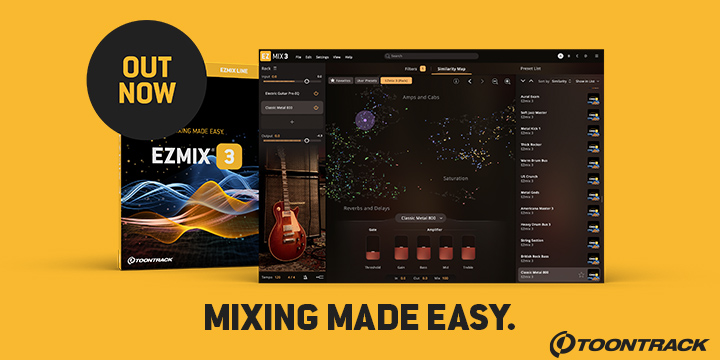
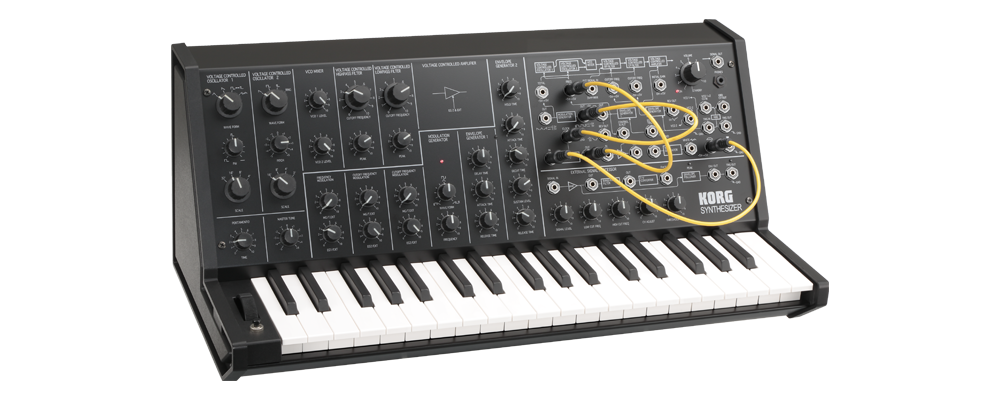

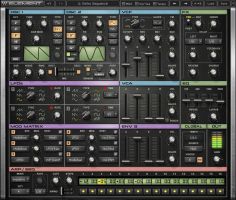
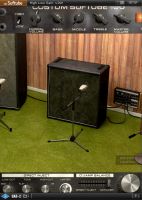
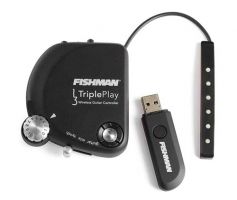
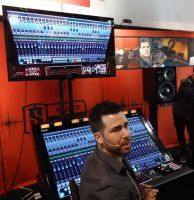
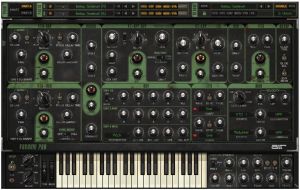
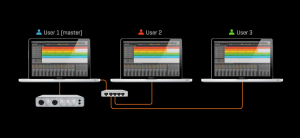
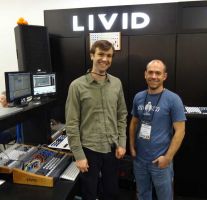
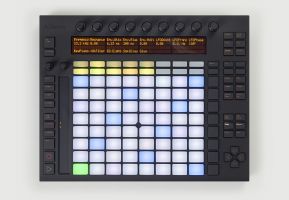

 Other Related News
Other Related News